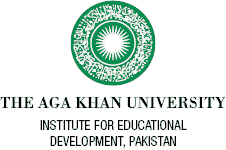This project took a multi-pronged approach to enrol and retain out-of-school children in schools in three districts of Gilgit-Baltistan. Accelerated efforts, involving all key stakeholders, led to enrolling more than 3,000 children. Beyond advocacy campaigns, this project focused on improving teaching practices and strengthening governance structures and basic resource provision in the schools. Enhancing community and parental engagement with the schools was another critical component.
Key interventions and outcomes
More than 3000 out-of-school-children gained access to school
Enrollment campaign, run under this project, succeeded beyond expectations. Thousands of individuals form social, educational, media and political circles participated in rallies and awareness-raising sessions in Gilgit, Skardu and Shigar districts. Communities found the advocacy material in Urdu useful and persuasive. Against the target of enrolling 2500 out-of-school-children (OOSC), the project team enrolled over 3300 children which reflects the effectiveness of the mobilisation campaign.
Strong governance structures and enhanced community engagement
The project team established 77 school management committees. More than 100 newly-inducted SMC members were trained at PDCN to help them understand their role and play an active role in improving the educational and physical condition of the project schools.
From the very beginning, the project took a participatory approach. Focus group discussions were held with the local communities to understand the challenges that hampered children's access to school. Local-level conventions enabled communities to understand and support the project interventions from the onset.
Parents got meaningfully involved in the learning process of their children through the newly established mother support groups (MSGs). Creation of MSGs also strengthened the partnership between school and home to provide quality education.
150 teachers trained for activity-based learning, multi-grade teaching and school development planning
Building capacity of teachers to improve their classroom practices was a core focus of the project. Altogether 150 teachers attended bespoke courses at PDCN. The sessions focused on building the teachers' multi-grade teaching, activity-based learning and school development planning skills. After attending the training, teachers were able to make learning for children more interactive and engaging. They also felt equipped to deal with the challenges of multi-grade teaching. The teachers applied their skills by developing and implementing School Development Plans in their respective schools.
Post-training, master educators visited schools to observe how the teachers were applying their newly learnt skills in their classroom. Teachers received on-the-spot feedback and mentoring support from educators.
Improved learning resources and facilities
All the project schools received basic educational resources. Forty schools got carpets and underlays as extremely-cold winters were making it hard for students to sit in the classrooms. Comfortable classrooms led to improving student attendance and retention.
A key reason, for children remaining out of school, was identified to be extreme poverty. Almost 3000 newly-enrolled children got books, uniforms, school bags and other learning resources through the project.


